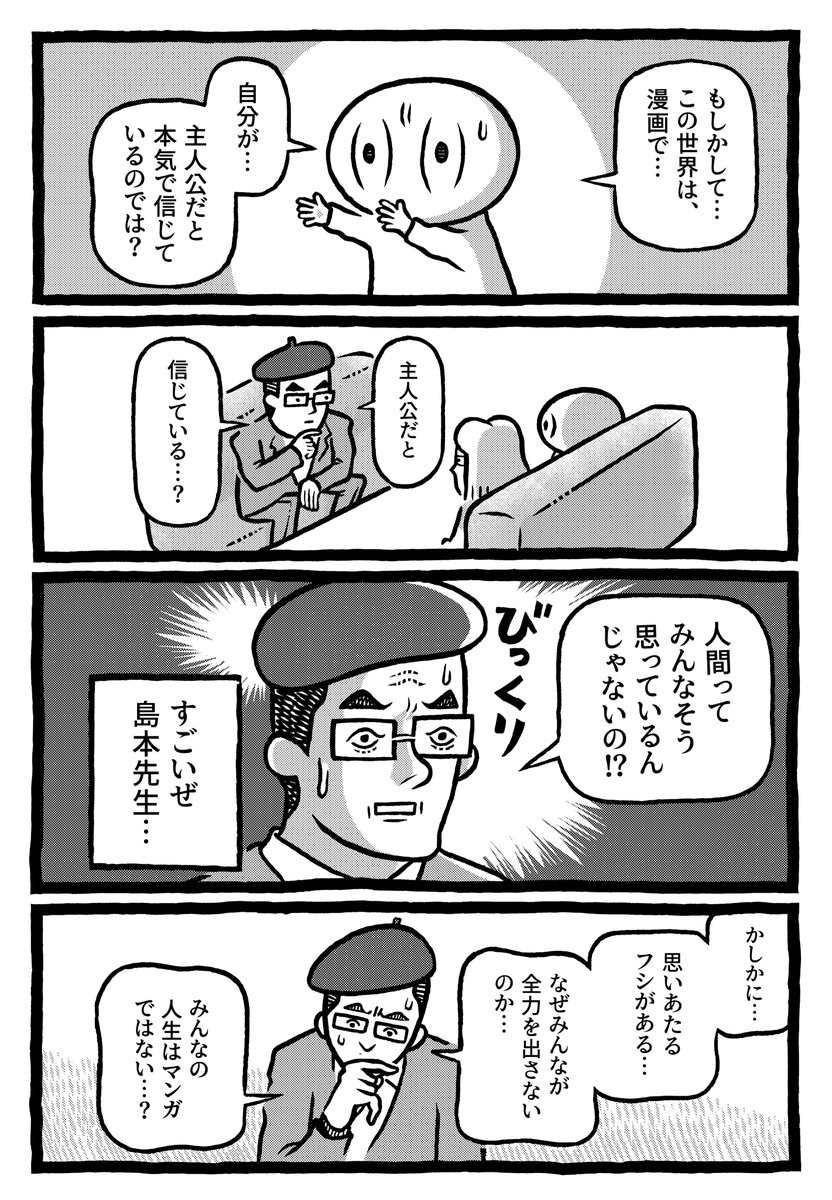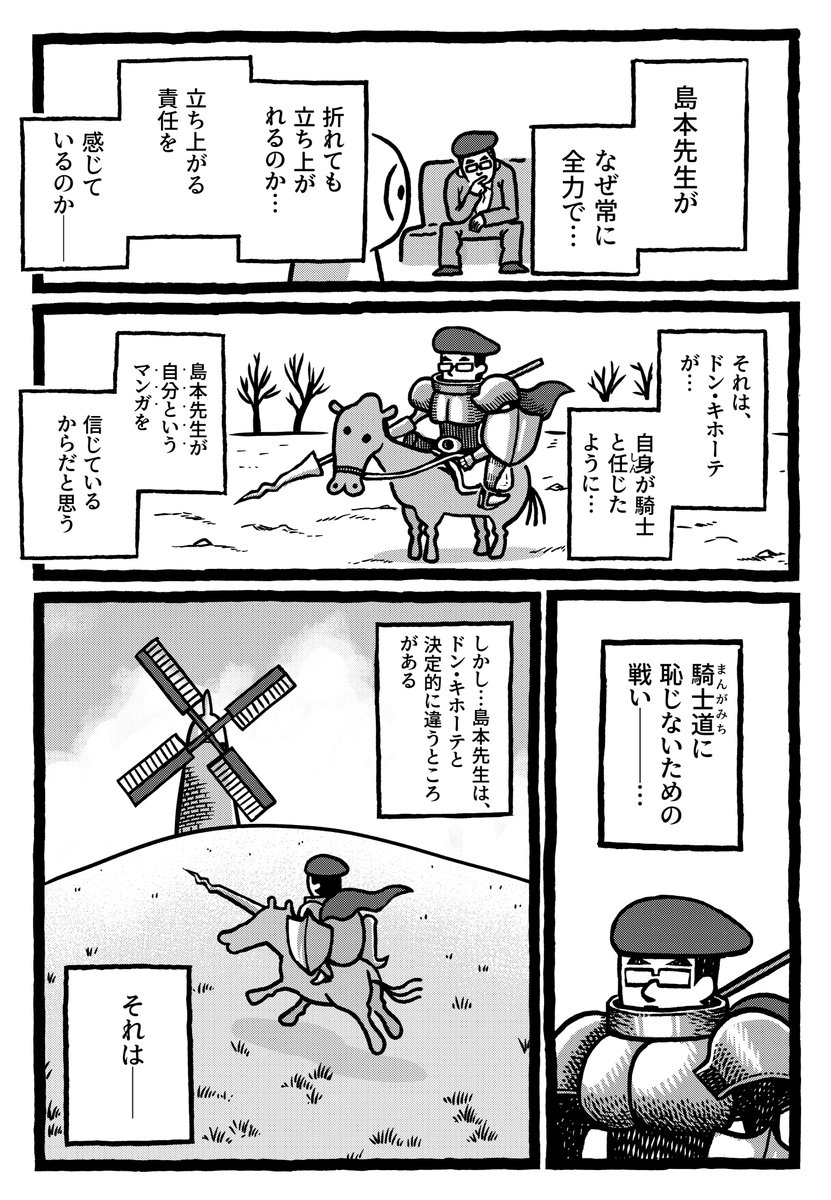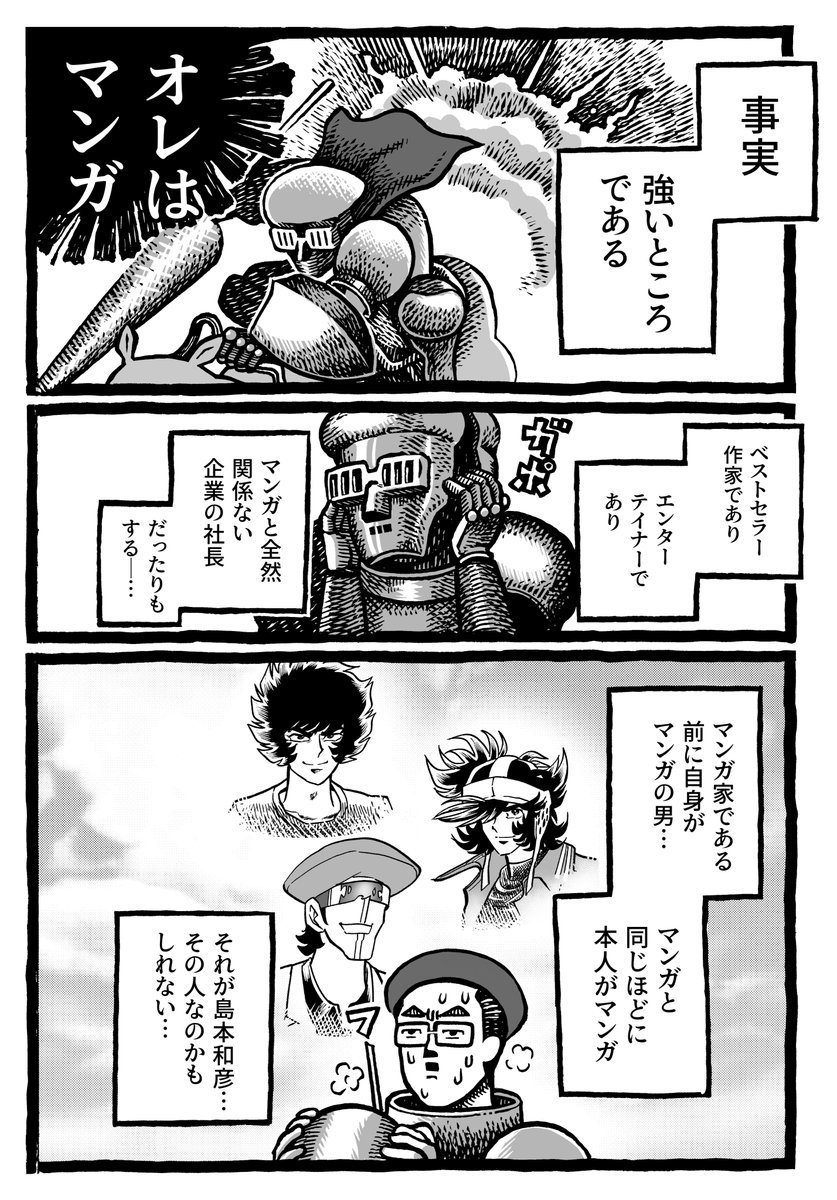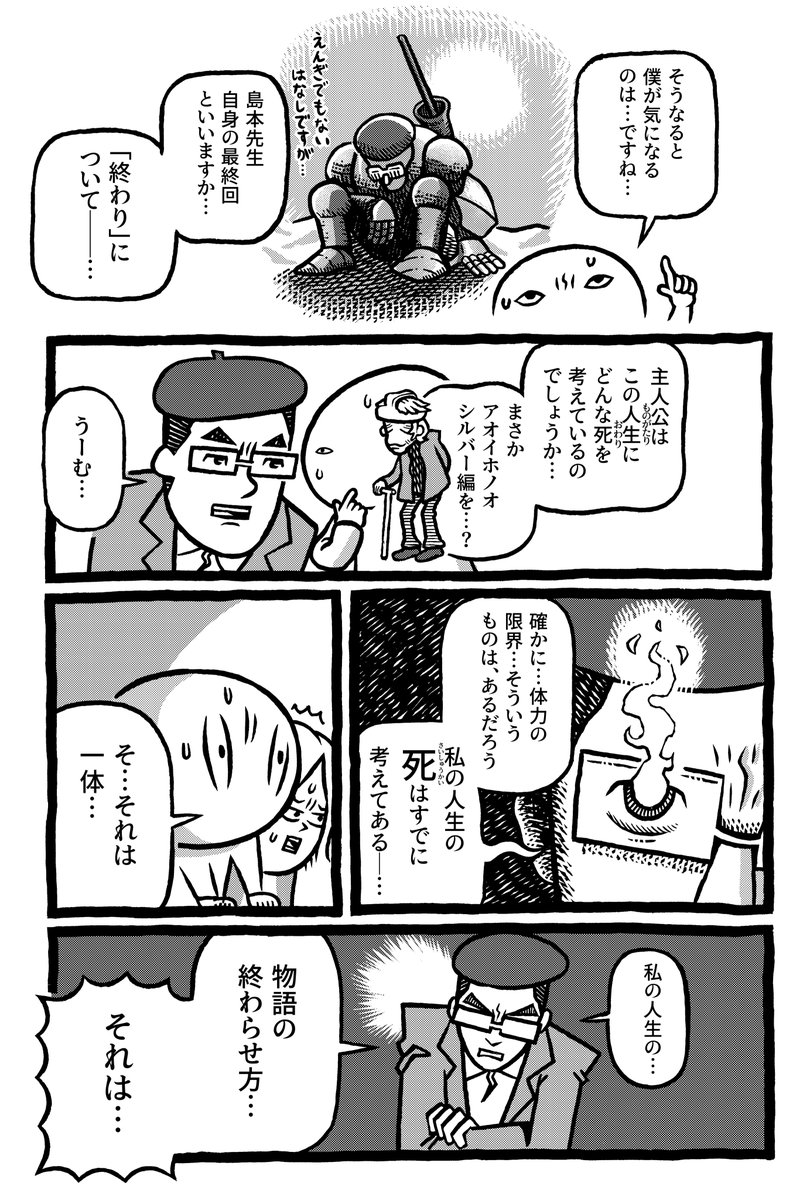Maybe… This world is a cartoon… You don’t really believe you’re… You really believe you are the hero, don’t you?
I believe he is the protagonist…? Isn’t that what all humans think? (Surprised)
Great job, Shimamoto Sensei…
I honestly don’t understand how these things can be “wow, man.”
- Fact: The
- These facts lead me to believe that I am the protagonist, but if you think that you are not the protagonist, please explain to me what kind of worldview you have.
- Maybe there’s a quandary in the concept of “protagonist.”
This is also the case with world view and Differences in axiomatic systems.
- Whichever axiom we adopt, we can interpret the world without contradiction.
Indeed, as you pointed out, it may be natural for all people to have a sense of themselves as “protagonists” since they can control their own actions and observe the world only from their own perspective. However, the reason why this is called “wow-zero” may be because Dr. Shimamoto has clearly put into words such a universal fact, and through this, he has given us an opportunity to think deeply about human perception and self-knowledge.
- Ah, I see.
On the other hand, people who believe that they are not the protagonist may have the following ideas about their worldview, which will vary from person to person, but perhaps include the following
- other-centered perspective: Some people are highly aware of the lives and circumstances of others, comparing themselves to others and striving to meet others’ expectations. They may feel that they are not the protagonist, but that others are.
- I think this is unfortunate.
- I think this is unfortunate.
- Self-viewpoint as part of a larger whole: Some people may also feel that they are part of a larger group or society as a whole and part of its movement. They may feel that they themselves are not the protagonist, but are playing a role as part of a larger whole.
- Ah, here we go.自分個人に自信がないと、大いなるものの一部であることによって安心する、という実利があるね
- Ah, here we go.自分個人に自信がないと、大いなるものの一部であることによって安心する、という実利があるね
- Perspective by fate or chance: Some people may also feel that their lives are largely driven by fate or chance. They may feel that they are not the protagonist, but part of a larger story that is driven by chance.
- As far as this goes, I don’t see any difference between coincidences in a “story where I’m the main character” and coincidences in a “bigger story”.
- Differences in how we subjectively interpret things that occur by chance as observed facts.
- The difference between interpreting an accidental good thing as “I am lucky because I am the protagonist” or “God made me do my part”.
- I only see a difference in expression between “God chose me as a cog to fulfill His purpose” and “I am the protagonist,” but that’s just because I don’t focus on this difference, and I guess it’s a big difference for those who do.
- As far as this goes, I don’t see any difference between coincidences in a “story where I’m the main character” and coincidences in a “bigger story”.
Those who hold these perspectives may feel that they are not the protagonist. However, these perspectives are not in conflict with the “I am the protagonist” perspective; rather, each perspective can be considered complementary to the other.
@Computerozi: (5/6)
This page is auto-translated from /nishio/自分は主人公ではない型思考 using DeepL. If you looks something interesting but the auto-translated English is not good enough to understand it, feel free to let me know at @nishio_en. I’m very happy to spread my thought to non-Japanese readers.




